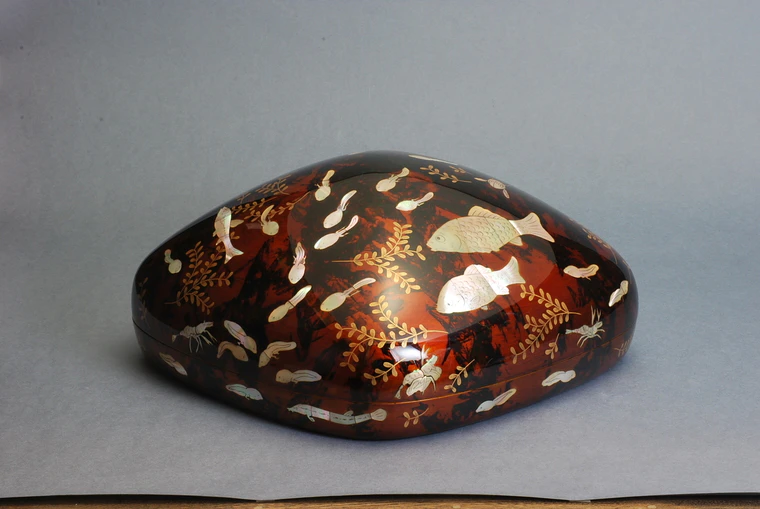Kanshitsu box with design in mother-of-pearl inlay and makie "Swim"
H 12.0 x W 26.0 x D 26.0 cm,Year.2014Iori Nakajo
1966 -- Lacquerware
-
Price Range
$1,500 - 21,000
Info
The prices of the artworks on Gallery Japan are determined by the artists themselves and are published directly on the website.
close - Awards at Japan Kōgei Assoc. Exhibitions : 7
About the Artwork
The base is formed with dry lacquer and decorated with mother-of-pearl inlay using green turban shells cut into patterns.I expressed the scene of the daily life of freshwater creatures in this piece.
Description
-
CategoryLacquerware
-
DimensionsH 12.0 x W 26.0 x D 26.0 cm
-
Year presented2014
-
InstructionsAvoid displaying in a room where the sunlight comes in for a long time (a few days). Direct sunlight is strictly prohibited. To clean fingerprints, wipe with eyeglass cloth. It is effective to blow on the piece while wiping. To avoid fingerprints, please use gloves when handling.
Techniques Used
Dry lacquer
For works of dry lacquer (kanshitsu), first a clay form is created and plaster is used to take a mold of the form. Next, repeated layers of hemp cloth and lacquer are applied to the mold until they are built up to the desired thickness. Finally, the mold is removed and additional coats of lacquer are applied to finish the piece. The hemp fibers are strengthened when the lacquer bonds with them, making dry lacquer an excellent technique for creating sturdy forms with a significant degree of freedom.
Maki-e
Maki-e (literally “sprinkled pictures”) is a representative lacquerware technique that originated in Japan around 1,200 years ago. Maki-e is done by painting lacquer motifs on the surface of a piece using a fine brush and then sprinkling gold powder onto the lacquer before it hardens, producing luxurious decorations.
Mother-of-pearl inlay (Raden)
Mother-of-pearl inlay (Raden) is a decorative technique that uses the iridescent inner layer of abalone shell, turban shell, pearl oyster shell, or other mollusk shells. The technique came to Japan from China 1,300 years ago, and pieces featuring mother-of-pearl inlay are included among the artifacts at the Shōsōin Repository in Nara.
Please feel free to contact us to commission work, check artworks available for purchase etc.

